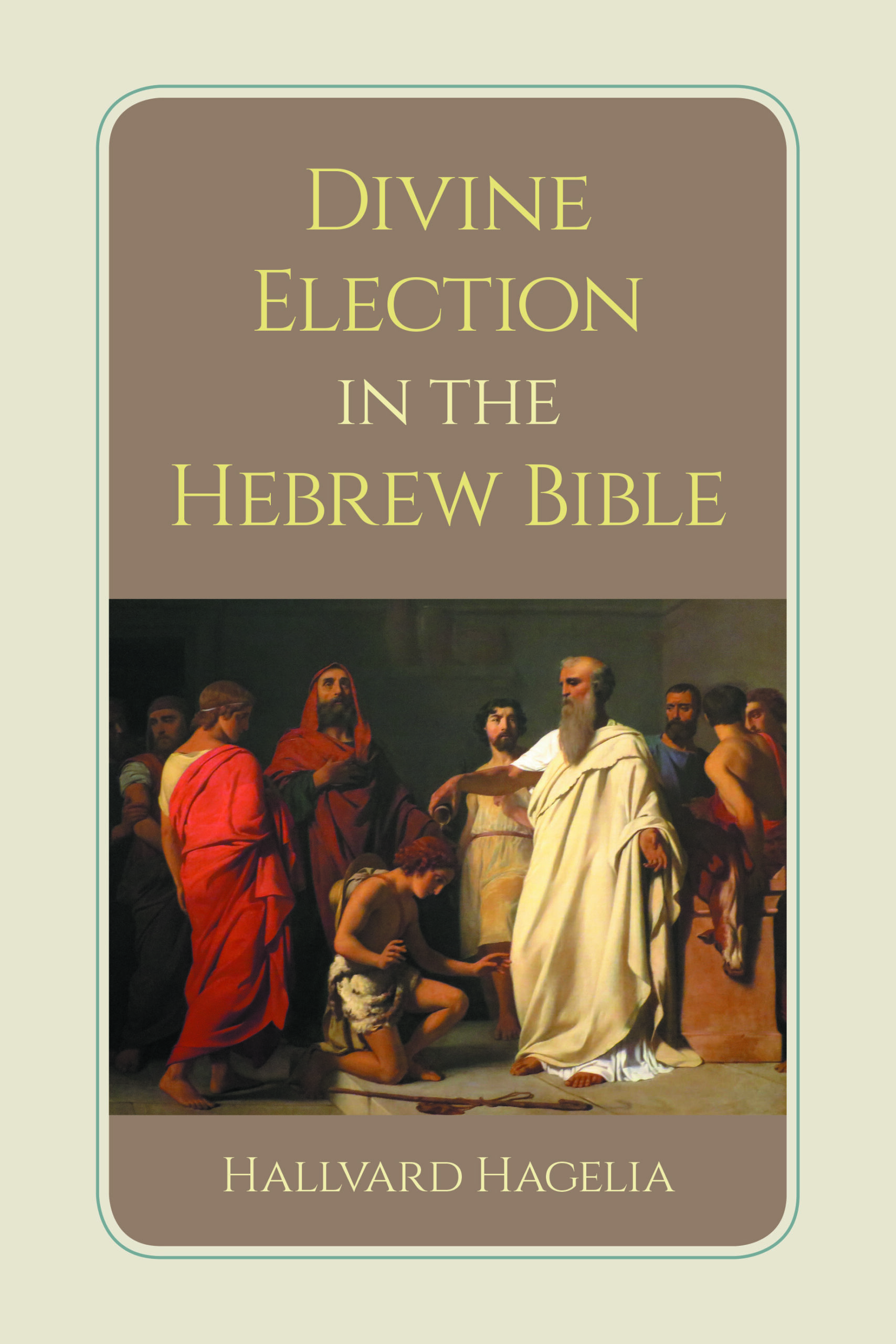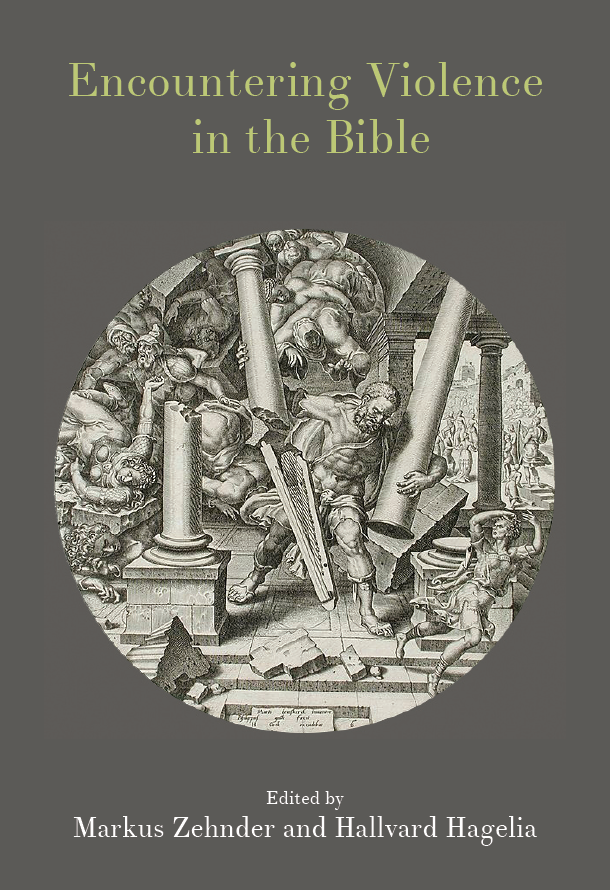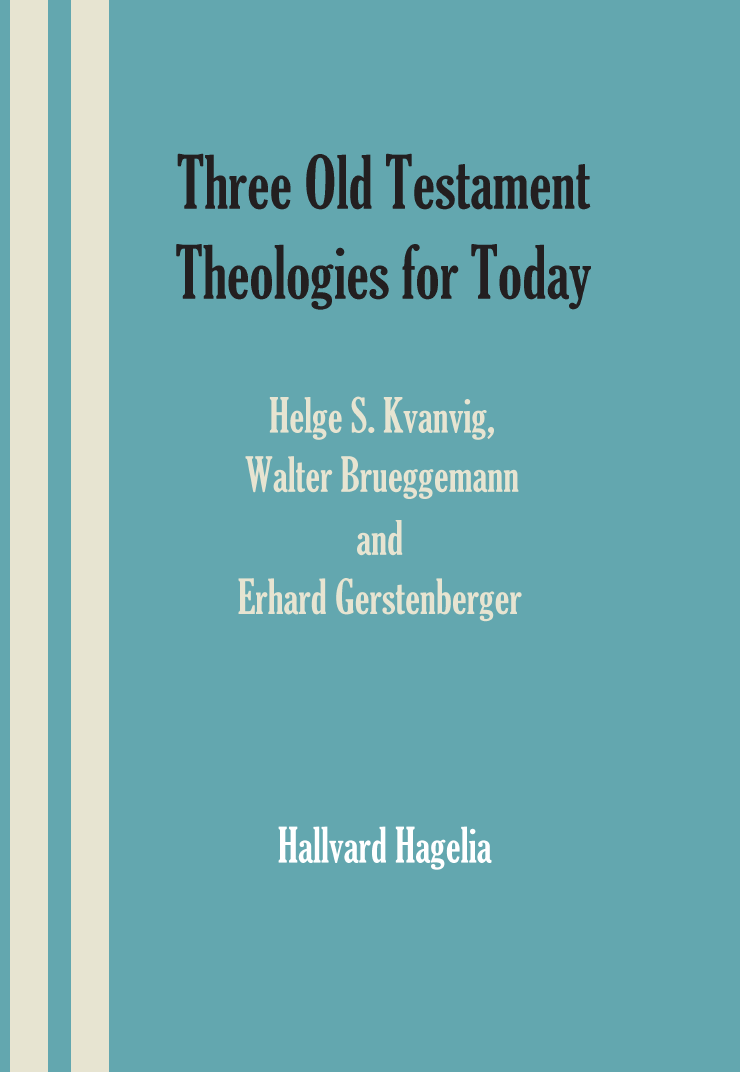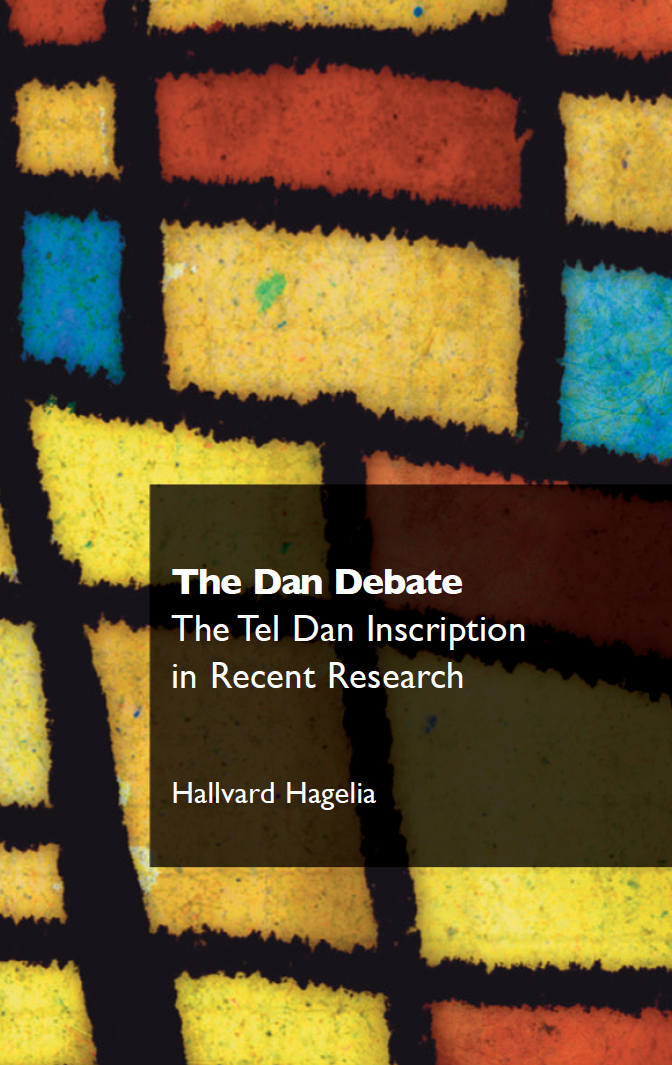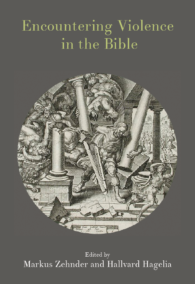The Bible and Money: Economy and Socioeconomic Ethics in the Bible
Published: Nov 2020
£70.00
What does the Bible say about money? This volume presents the researches of 18 international biblical scholars at Ansgarskolen«s Norwegian Summer Academy for Biblical Studies. Papers include:
The Prophets on Trade: Did They Consider it a Canaanite Affair?
Two Categories of Loans in the Old Testament á Give Willingly and Do Not Expect Anything? A Biblical View on Loans and Interest
Government and Economy in the Hebrew Bible: Taxes and Related Issues á State and Temple Economy in the Levant in the Persian and Hellenistic Periods
Economics and Poverty: Negotiating the Spectrum of Personal Wealth or Shared Resources
Proportionate and Sufficient Wealth: Financial Transparency in Paul's Collection for the Saints in Jerusalem á Engaging the New Testament and the Welfare State
Divine Plenty, Human Thriftiness: A Canonical Reading of (Un)Limited Resources This unusual volume is a useful resource for researchers, but also a coursebook to be used in the classroom and a comprehensive introduction to biblical economic ethics in general.
The Bible and Money: Economy and Socioeconomic Ethics in the Bible
£70.00
What does the Bible say about money? This volume presents the researches of 18 international biblical scholars at Ansgarskolen«s Norwegian Summer Academy for Biblical Studies. Papers include:
The Prophets on Trade: Did They Consider it a Canaanite Affair?
Two Categories of Loans in the Old Testament á Give Willingly and Do Not Expect Anything? A Biblical View on Loans and Interest
Government and Economy in the Hebrew Bible: Taxes and Related Issues á State and Temple Economy in the Levant in the Persian and Hellenistic Periods
Economics and Poverty: Negotiating the Spectrum of Personal Wealth or Shared Resources
Proportionate and Sufficient Wealth: Financial Transparency in Paul's Collection for the Saints in Jerusalem á Engaging the New Testament and the Welfare State
Divine Plenty, Human Thriftiness: A Canonical Reading of (Un)Limited Resources This unusual volume is a useful resource for researchers, but also a coursebook to be used in the classroom and a comprehensive introduction to biblical economic ethics in general.
Divine Election in the Hebrew Bible
Published: Nov 2019
£60.00
To citizens of the modern world the idea that someone or something might be especially elected by God seems problematic. If someone is elected, someone else is not elected. Does the God of all people have preferences? The idea that one particular nation should be elected by God is particularly difficult to accept.
Nevertheless, as this study intends to show, divine election is a central theme in the Hebrew Bible, and present in all its main parts. There are central acts of elections and less central acts of election. Abraham is elected as the founder of the people of Israel. Moses is elected as the ancestor of the religious and political people of Israel. David is elected as first of the Davidic kings. The election of these persons represents something more important than the persons themselves.
There are also other significant acts of election in the Hebrew Bible, especially the election of the land of Israel and of the city of Jerusalem. As well, there is the election of individuals such as the prophets. And even the Assyrians, the Babylonians and King Cyrus of Persia are presented as elected by God for special tasks.
A new full-length study of the important concept of divine election in the Hebrew Bible is long overdue, and Hagelia's readable and balanced monograph can be expected to bring the topic back into contemporary conversation.
Divine Election in the Hebrew Bible
£60.00
To citizens of the modern world the idea that someone or something might be especially elected by God seems problematic. If someone is elected, someone else is not elected. Does the God of all people have preferences? The idea that one particular nation should be elected by God is particularly difficult to accept.
Nevertheless, as this study intends to show, divine election is a central theme in the Hebrew Bible, and present in all its main parts. There are central acts of elections and less central acts of election. Abraham is elected as the founder of the people of Israel. Moses is elected as the ancestor of the religious and political people of Israel. David is elected as first of the Davidic kings. The election of these persons represents something more important than the persons themselves.
There are also other significant acts of election in the Hebrew Bible, especially the election of the land of Israel and of the city of Jerusalem. As well, there is the election of individuals such as the prophets. And even the Assyrians, the Babylonians and King Cyrus of Persia are presented as elected by God for special tasks.
A new full-length study of the important concept of divine election in the Hebrew Bible is long overdue, and Hagelia's readable and balanced monograph can be expected to bring the topic back into contemporary conversation.
Encountering Violence in the Bible
Published: Oct 2013
£60.00
Our world is full of violence, with repeated acts of terrorism and generally rising rates of violent criminal acts as the most obvious forms of the phenomenon in the Western world. It even reached the peaceful shores of Norway in the summer of 2011. This was one of the reasons why the first international meeting of the Norwegian Summer Academy for Biblical Studies was devoted to the topic 'Violence as an Ethical Challenge in the Bible'.
Eighteen biblical scholars from nine different countries (Joshua Berman, Lennart Bostršm, Friedmann Eissler, Torleif Elgvin, LarsOlov Eriksson, Karin Finsterbusch, Georg Fischer, Terence E. Fretheim, Hallvard Hagelia, Dana M. Harris, Robert L. Hubbard, Jr, ÌÉrstein Justnes, Gordon McConville, Kirsten Nielsen, Tommy Wasserman, Karl William Weyde, Peter Wick and Markus Zehnder) met on the beautiful premises of Ansgar Theological Seminary to discuss some of the most fundamental aspects of the topic. The papers presented at the conference are collected in the present volume, dealing mostly with the Hebrew Bible, but covering also the New Testament, Jewish literature from the Second Temple period and the Qur'an.
The contributions reflect a refreshing variety of scholarly and theological approaches. One of the fundamental questions addressed in several studies is how biblical texts justifying violence can be properly understood and used today. Other questions raised are how violent some of the often-criticized biblical passages really are and how violence can be overcome.
Encountering Violence in the Bible
£60.00
Our world is full of violence, with repeated acts of terrorism and generally rising rates of violent criminal acts as the most obvious forms of the phenomenon in the Western world. It even reached the peaceful shores of Norway in the summer of 2011. This was one of the reasons why the first international meeting of the Norwegian Summer Academy for Biblical Studies was devoted to the topic 'Violence as an Ethical Challenge in the Bible'.
Eighteen biblical scholars from nine different countries (Joshua Berman, Lennart Bostršm, Friedmann Eissler, Torleif Elgvin, LarsOlov Eriksson, Karin Finsterbusch, Georg Fischer, Terence E. Fretheim, Hallvard Hagelia, Dana M. Harris, Robert L. Hubbard, Jr, ÌÉrstein Justnes, Gordon McConville, Kirsten Nielsen, Tommy Wasserman, Karl William Weyde, Peter Wick and Markus Zehnder) met on the beautiful premises of Ansgar Theological Seminary to discuss some of the most fundamental aspects of the topic. The papers presented at the conference are collected in the present volume, dealing mostly with the Hebrew Bible, but covering also the New Testament, Jewish literature from the Second Temple period and the Qur'an.
The contributions reflect a refreshing variety of scholarly and theological approaches. One of the fundamental questions addressed in several studies is how biblical texts justifying violence can be properly understood and used today. Other questions raised are how violent some of the often-criticized biblical passages really are and how violence can be overcome.
Three Old Testament Theologies for Today: Helge S. Kvanvig, Walter Brueggemann and Erhard Gerstenberger
Published: Jun 2012
£50.00
This book is a critical analysis and comparison of three Old Testament theologies, those by Helge S. Kvanvig, Historisk Bibel og bibelsk historie (1999), Walter Brueggemann, Theology of the Old Testament (1997), and Erhard S. Gerstenberger, Theologies of the Old Testament (2002). Since Kvanvig's book is written in Norwegian, his book is not generally known among Old Testament scholars outside Scandinavia. The three volumes have different theological profiles. Kvanvig, unlike other Old Testament theologians, allows theology to develop from his analyses of the biblical narratives and the strategies available to readers. Gerstenberger presents Old Testament theology as a plurality of theologies, and his book is as much a history of Israelite religion and ancient Israel's social history as a theology proper. Brueggemann sees Old Testament theology within the framework of a virtual trial between Israel and Yahweh. All three books are to some degree postmodern in their approach to Old Testament theology, Gerstenberger to a lesser degree, Brueggemann to a greater degree. Hagelia argues that Kvanvig's book could with profit be read as a prolegomenon to Brueggemann's book, whereas Gerstenberger's book follows a different track. On the basis of these three eminent contributions, the author outlines a possible future for the business of writing Old Testament theologies, suggesting that future theologies will be much more in conversation with contemporary issues, ethical, political and social, than the traditional theologies of the past have been.
Three Old Testament Theologies for Today: Helge S. Kvanvig, Walter Brueggemann and Erhard Gerstenberger
£50.00
This book is a critical analysis and comparison of three Old Testament theologies, those by Helge S. Kvanvig, Historisk Bibel og bibelsk historie (1999), Walter Brueggemann, Theology of the Old Testament (1997), and Erhard S. Gerstenberger, Theologies of the Old Testament (2002). Since Kvanvig's book is written in Norwegian, his book is not generally known among Old Testament scholars outside Scandinavia. The three volumes have different theological profiles. Kvanvig, unlike other Old Testament theologians, allows theology to develop from his analyses of the biblical narratives and the strategies available to readers. Gerstenberger presents Old Testament theology as a plurality of theologies, and his book is as much a history of Israelite religion and ancient Israel's social history as a theology proper. Brueggemann sees Old Testament theology within the framework of a virtual trial between Israel and Yahweh. All three books are to some degree postmodern in their approach to Old Testament theology, Gerstenberger to a lesser degree, Brueggemann to a greater degree. Hagelia argues that Kvanvig's book could with profit be read as a prolegomenon to Brueggemann's book, whereas Gerstenberger's book follows a different track. On the basis of these three eminent contributions, the author outlines a possible future for the business of writing Old Testament theologies, suggesting that future theologies will be much more in conversation with contemporary issues, ethical, political and social, than the traditional theologies of the past have been.
The Dan Debate: The Tel Dan Inscription in Recent Research
Published: Aug 2009
£45.00
The Tel Dan inscription was found in three fragments on Tel Dan in northern Israel in 1993 and 1994. It is one of the most controversial textual archaeological finds since the discovery of the Dead Sea Scrolls. Most scholars agree that the text, which is written in Old Aramaic, is to be dated to the late ninth century BCE. It refers to a war between the Aramaeans and the northern kingdom of Israel. The text is apparently represented as authored by King Hazael of Damascus, and many scholars have discerned the names of the kings Jehoram and Ahaziah of Israel and Judah in the fragmented text.
There has been an extremely lively, and even heated, debate over both its language and its content, and it is time that a full survey of the debate should be undertaken. In his previous book, The Tel Dan Inscription: A Critical Investigation of Recent Research on its Palaeography and Philology (2006)--now distributed by Sheffield Phoenix Press--Hallvard Hagelia has examined those more technical aspects of the debate. In the present corollary volume, The Dan Debate: The Tel Dan Inscription in Recent Research, Hagelia analyses the debate on all the other more general aspects of the inscription. His own view is to support the joining of the fragments as it is done by the editors, Biran and Naveh, and to translate the controversial term bytdwd as 'House of David'.
The debate on the Tel Dan is interesting and significant in itself, but it can also be viewed as a case study of the wider debate between the so-called 'minimalists' and 'maximalists' in Hebrew Bible scholarship. In particular Hagelia's two books offer an notable exchange of views with George Athas's The Tel Dan Inscription: A Reappraisal and a New Interpretation (2003).
The Dan Debate: The Tel Dan Inscription in Recent Research
£45.00
The Tel Dan inscription was found in three fragments on Tel Dan in northern Israel in 1993 and 1994. It is one of the most controversial textual archaeological finds since the discovery of the Dead Sea Scrolls. Most scholars agree that the text, which is written in Old Aramaic, is to be dated to the late ninth century BCE. It refers to a war between the Aramaeans and the northern kingdom of Israel. The text is apparently represented as authored by King Hazael of Damascus, and many scholars have discerned the names of the kings Jehoram and Ahaziah of Israel and Judah in the fragmented text.
There has been an extremely lively, and even heated, debate over both its language and its content, and it is time that a full survey of the debate should be undertaken. In his previous book, The Tel Dan Inscription: A Critical Investigation of Recent Research on its Palaeography and Philology (2006)--now distributed by Sheffield Phoenix Press--Hallvard Hagelia has examined those more technical aspects of the debate. In the present corollary volume, The Dan Debate: The Tel Dan Inscription in Recent Research, Hagelia analyses the debate on all the other more general aspects of the inscription. His own view is to support the joining of the fragments as it is done by the editors, Biran and Naveh, and to translate the controversial term bytdwd as 'House of David'.
The debate on the Tel Dan is interesting and significant in itself, but it can also be viewed as a case study of the wider debate between the so-called 'minimalists' and 'maximalists' in Hebrew Bible scholarship. In particular Hagelia's two books offer an notable exchange of views with George Athas's The Tel Dan Inscription: A Reappraisal and a New Interpretation (2003).



